Read Our Frequently Asked Questions
Window Tint
-
Why should I consider window tinting?
Window tinting offers numerous benefits, including:
- Heat reduction: Tinted windows can significantly reduce the amount of heat entering your vehicle, keeping the interior cooler and reducing the reliance on air conditioning.
- Glare reduction: Tinted windows minimize glare from the sun, headlights, and other sources, making driving more comfortable and safer.
- UV protection: The window film blocks up to 99% of harmful UV rays, protecting your skin, eyes, and vehicle interior from sun damage.
- Privacy and security: Tinted windows provide an added layer of privacy, making it difficult for others to see inside your vehicle.
- Aesthetics: Window tinting can enhance the appearance of your vehicle giving it a sleek, fresh look.
-
Is window tinting legal?
Window tinting laws vary by jurisdiction. It is essential to familiarize yourself with the local regulations to ensure compliance. Our professional installers are knowledgeable about tinting laws and can guide you to choose a tint that meets legal requirements. *See WA State Tint Laws for more information.
-
How long does the window tinting process take?
The duration of the window tinting process depends on various factors, such as the year and type of vehicle and the number of windows. Generally, a typical vehicle can be tinted within 1 to 3 hours. Our team will provide you with a more accurate estimate based on your specific requirements.
-
Can window tinting be removed?
Yes, window tinting can be removed if needed. However, the ease of removal may depend on the type of film and the duration it has been installed. Our professional installers have the expertise and tools to safely remove window tinting without damaging the glass.
-
What types of window tinting options are available?
We offer a range of window tinting options to suit your specific needs, including:
Standard Tint: This is a basic tint that provides UV protection, and privacy.
Ceramic Tint: Ceramic tint provides the highest level of heat reduction, exceptional optical clarity, privacy and maximum UV protection.
-
Do you provide a warranty for window tinting?
Our team will provide you with detailed information about the lifetime warranty associated with your chosen tint.
For any additional questions or specific inquiries, please feel free to contact our window tinting experts.
Paint Protection Film
-
What is Paint Protection Film (PPF)?
Paint Protection Film, also known as clear bra or PPF, is a transparent film that is applied to the exterior surfaces of vehicles to protect the paint from damage caused by rock chips, scratches, road debris, UV rays, and other environmental factors.
-
Why should I consider using Paint Protection Film?
Paint Protection Film offers several benefits, including:
- Protection against rock chips and scratches: PPF creates a barrier that can absorb impacts and prevent damage to the vehicle's paint.
- UV protection: The film provides UV resistance, preventing the paint from fading or discoloring over time.
- Self-healing properties: Xpel PPF products has self-healing properties, where minor scratches and swirl marks automatically disappear when exposed to heat.
- Preserves vehicle's resale value: By maintaining the appearance of your vehicle's paint, PPF helps retain its resale value.
-
What parts of the vehicle can be covered with Paint Protection Film?
Paint Protection Film can be applied to various areas of a vehicle, including the front bumper, hood, fenders, side mirrors, door edges, rocker panels, and rear bumper. It can also be customized to cover other specific areas prone to damage.
-
Is Paint Protection Film visible on the vehicle?
High-quality PPF is designed to be nearly invisible when properly installed. It is optically clear and does not significantly alter the appearance of your vehicle. However, it's important to choose a reputable installer who uses quality films and has expertise in precise installation techniques to ensure a seamless and invisible result.
-
How long does Paint Protection Film last?
*See Xpel PPF Warranty.
-
Can Paint Protection Film be removed?
Yes, Paint Protection Film can be safely removed when needed. It is recommended to have a professional installer remove the film to ensure proper technique and minimize the risk of damage to the underlying paint.
-
Will Paint Protection Film damage the paint on my vehicle?
When professionally installed and properly maintained, Paint Protection Film should not damage the paint on your vehicle. In fact, it acts as a protective layer, preserving the original paint beneath it. However, poor installation or the use of low-quality films can result in adhesive residue or damage to the paint upon removal. That's why it's crucial to choose an experienced and reputable installer.
-
How should I maintain my vehicle with Paint Protection Film?
Maintaining your vehicle with Paint Protection Film is relatively simple. Regular washing and drying with non-abrasive products is recommended. Avoid using harsh chemicals, abrasive cleaners, or automatic car washes with brushes. When paired with Xpel Ceramic Coating, it can help enhance the appearance and extend the lifespan of the film.
-
Does Paint Protection Film require any special care or curing time?
It is advisable to avoid washing or exposing the vehicle to excessive moisture for a minimum of 3 days after installation to allow the adhesive to fully bond to the paint.
If you have any additional questions or specific inquiries regarding Paint Protection Film, feel free to reach out to our experts for further assistance.
Can’t find what you’re looking for? Simply call our friendly staff at (360) 480-4196.
